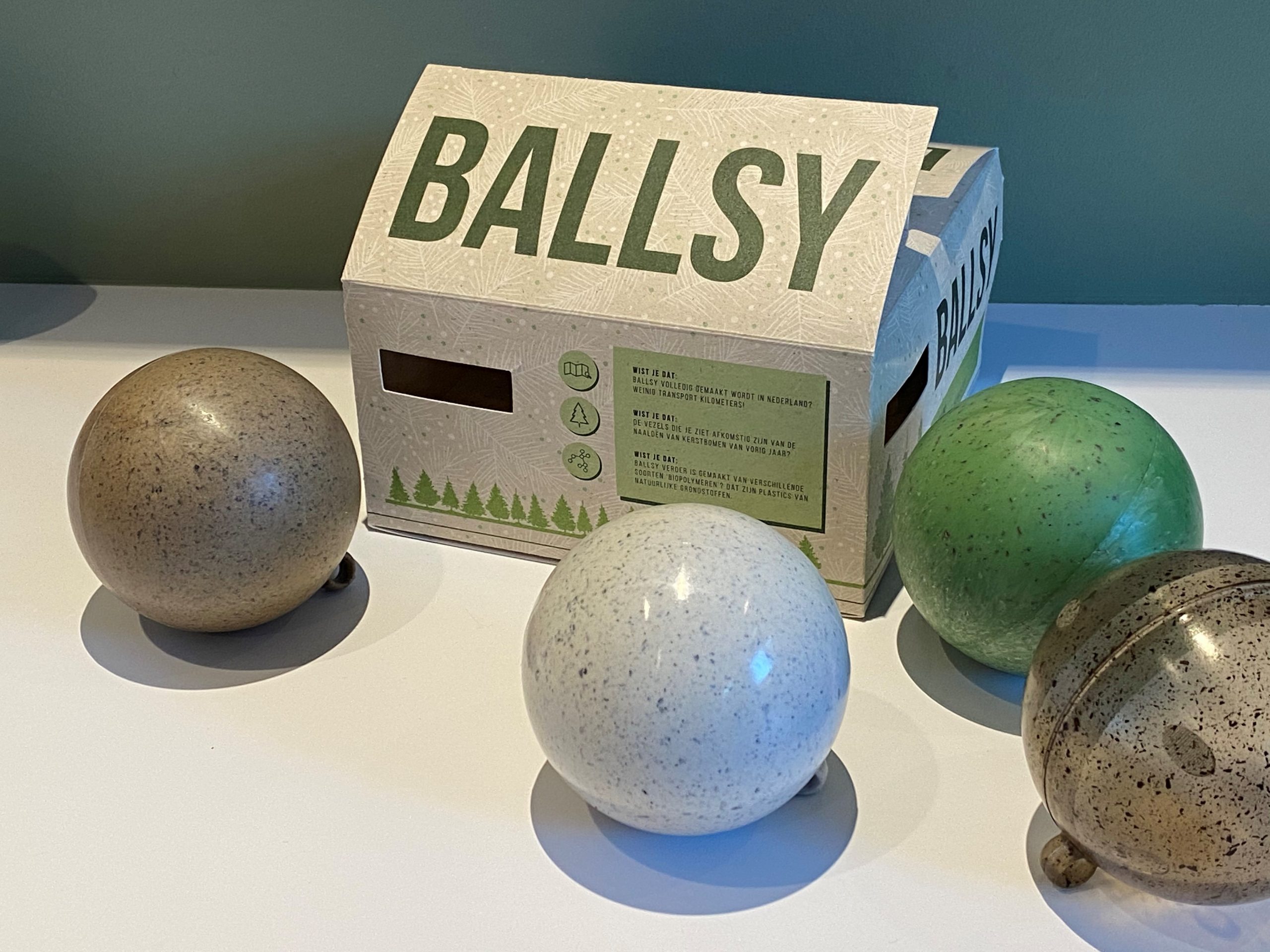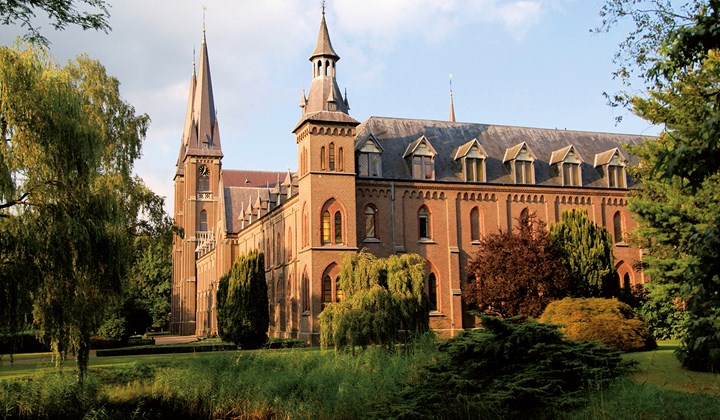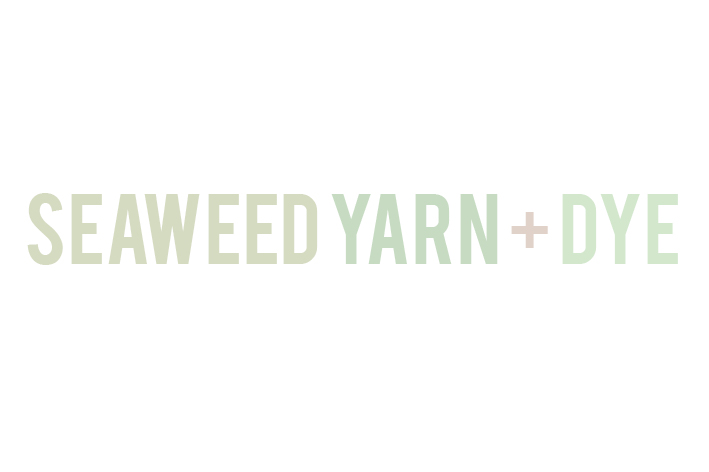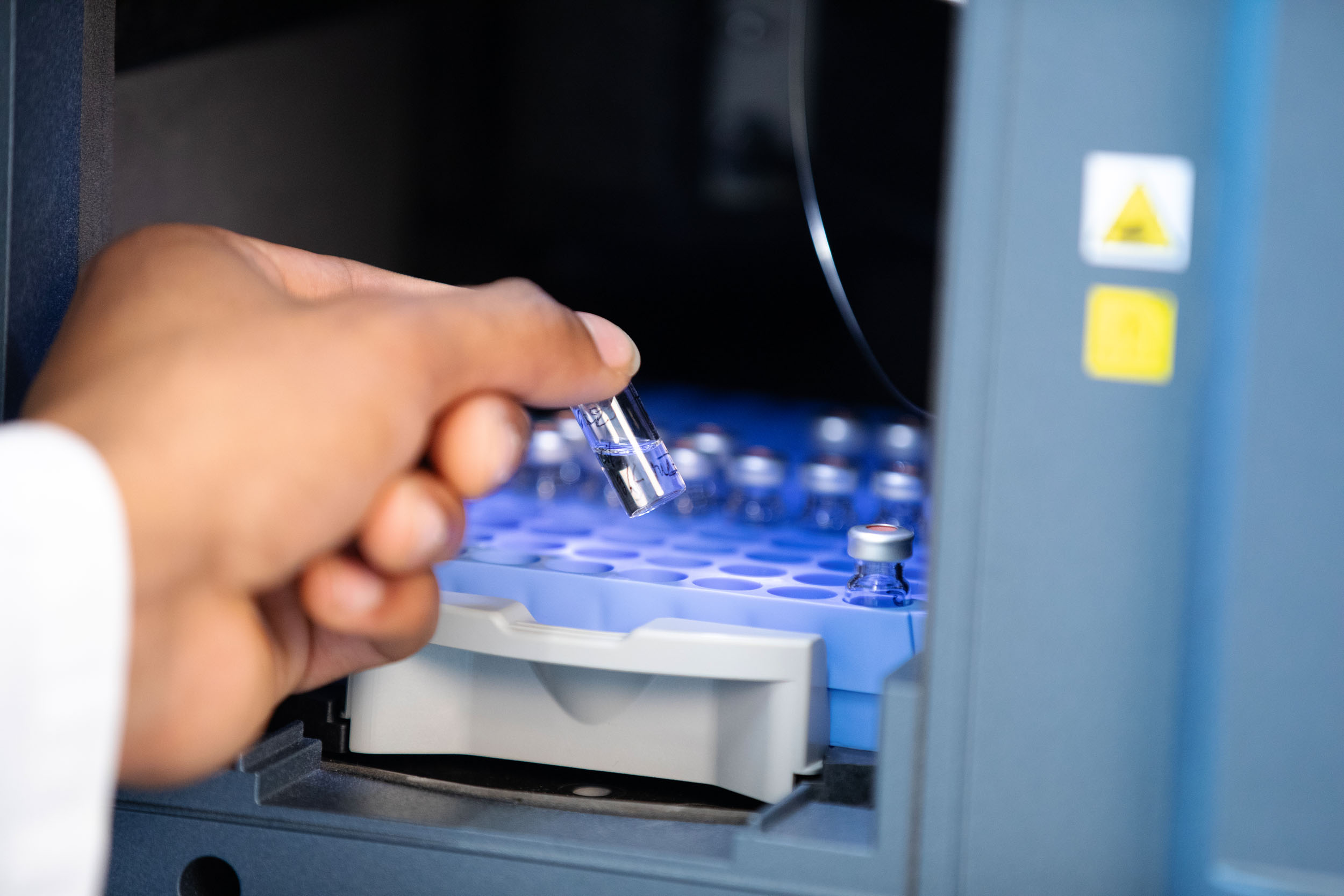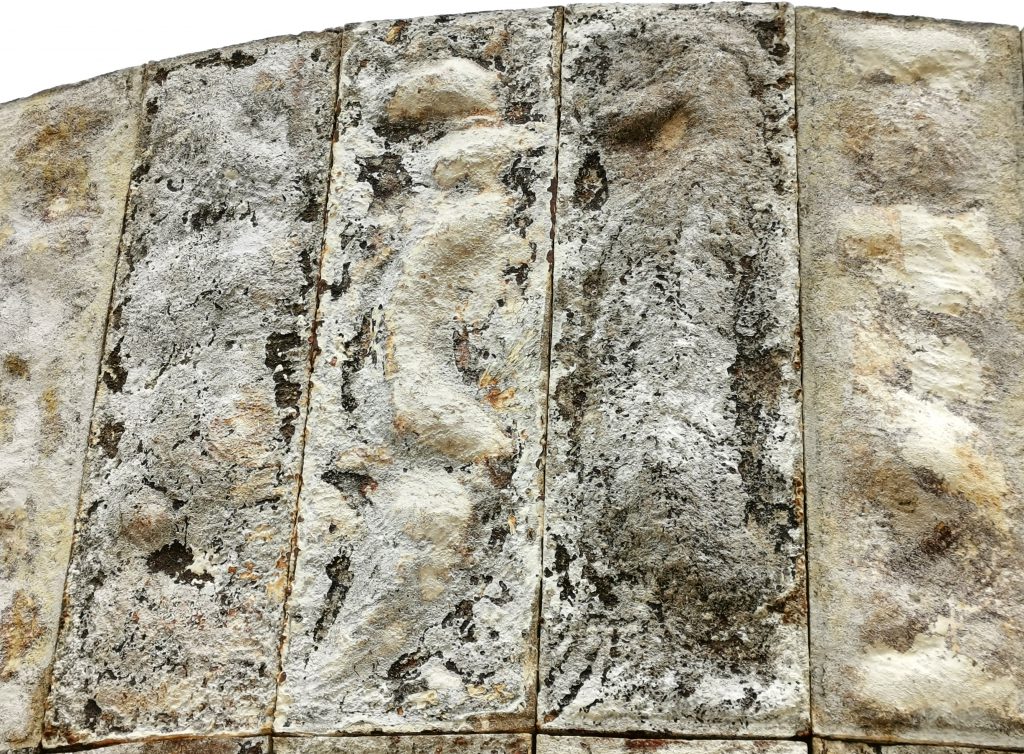Resultaten
Short summary: it is possible. The project shows that it is perfectly possible to use biopolymers in an injection molding process to form a Christmas ball and adding needles from last year’s Christmas trees is no obstacle. Moisture percentage of the needles and their size do determine how many needles can be added. Too large or too many needles cause blockages in the injection mold. The functional properties of the biobased plastics are not significantly impaired by the addition of the needles.
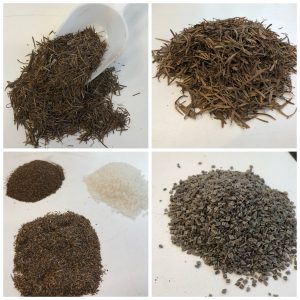
biopolymeren en biomassa van kerstbomen
The story behind the project, the reason, appears to be of great added value for the target group when it comes to the potential purchase of the Christmas baubles. Although the cost is substantially higher than for a comparable Christmas bauble made from traditional fossil-based plastics, the consumer is willing to pay a higher price for the bauble. This willingness seems to fit directly with the story.
Documentation results:
A special website has been developed around the end product.
Consortium
From the start of the project, business partners appear to be involved in the topic and during the project period additional companies that are approached for missing expertise appear eager to participate. This has resulted in a broad consortium in which the entire production chain of the baubles is represented. Each partner contributed with expertise, materials and / or facilities and only through this high degree of involvement have we finally succeeded in producing, packaging and communicating about a set of 4 biobased, circular Christmas baubles. More information about the business partners can be found via the logos at the bottom of this page or the page (https://www.biobasedkerstbal.nl/partners-studenten).
Students from various schools and study programs have been active in the project from the beginning to the end. They also made a major contribution to the results. The budget for conducting the research came from the Top Consortium Foundation for Knowledge and Innovation Biobased Economy (TKI BBE).
Publicity
Since the start of the project, and especially in the run-up to December, the project has received attention in various media. A summary:
- Article BNdeStem
- Video report BredaNu
- Article Innovative Materials
- Article Punt (student magazine Avans)
- Video report Avans University of Applied Sciences

BALLSY Christmas baubles made of various raw materials – from left to right: solanyl, bio-pe, pla, vibers bio-pe
Reason
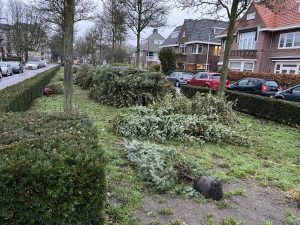
Christmas trees on the street in January
Every year 3 million Christmas trees are planted in the Netherlands. The vast majority eventually finds its way to Dutch living rooms as an adult tree and remains there, often for about four to five weeks.
Once home, the tree is of course beautifully dressed. It is the center piece of the living room. In the past ten years, the Christmas turnover of market leader Intratuin has doubled to 135 million euros in 2019, according to its own words. All in all, the Christmas turnover of the Dutch garden centers is estimated by the Dutch garden sector at 300 million euros. Going out for Christmas decorations is becoming a complete day out these days.
“It can’t be” seems to be the motto when it comes to the nicest party of the year.
Wasted biomass
What to do with all that biomass that is released in the first weeks of January? There are various initiatives that value a Christmas tree in the waste phase. For example, it is possible to rent or lease a Christmas tree, so that the tree can be used for several years, and beer and paint are even made from parts of the tree on a small scale. However, the majority of the trees are still collected by the municipalities and then composted or burned. And the Christmas decorations of this year or last year that is really no longer possible for next year? it ends up with the residual waste
Meanwhile, the earth is warming up further and further. With all its consequences. So…
Sustainability in general is hard to find when it comes to Christmas trees and Christmas decorations. While there is a lot of debate in the Netherlands about the climate, nitrogen, use of biomass in power plants and whatnot, the average leaflet of retailers in the Christmas sector does not mention sustainability at all. We wanted to start a project based on this paradox. Goal: to develop a circular and biobased Christmas bauble.
Target
With the above in mind, we went looking for a way to make the Christmas party more sustainable, in a biobased and circular way.
20200101 until 20201231




